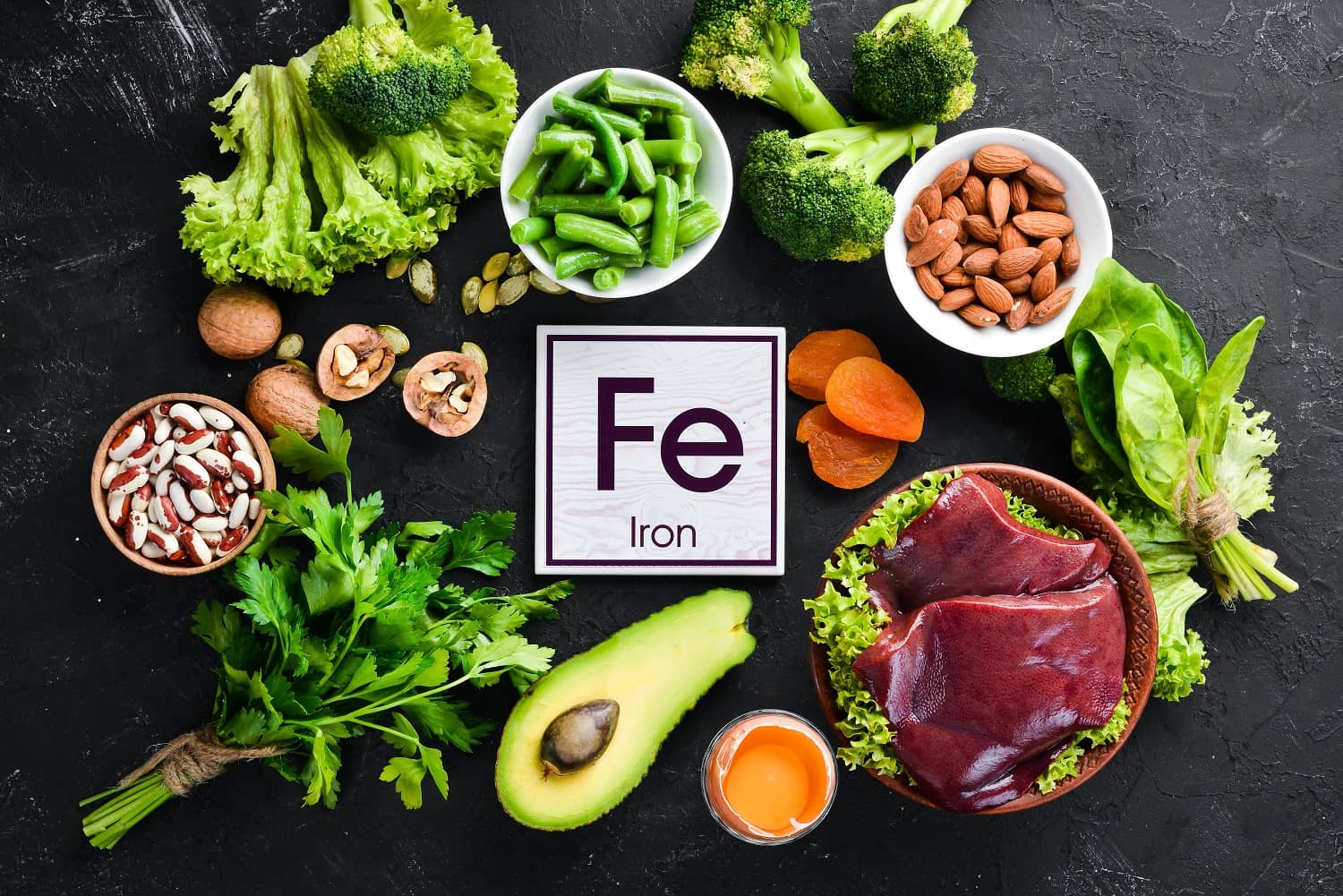There are a lot of vitamins, minerals, and nutrients that are important for maintaining your overall health and wellness. Generally speaking, it is ideal to consume a well-balanced diet that will ensure proper levels of all of the nutrients that your body needs to be healthy.
However, recent research from The American Journal of Clinical Nutrition suggests that there is one nutrient in particular that could be sabotaging your attempts to lose weight and get healthy: iron.
The Problem
Everyone knows that cutting calories is the simplest and most effective way to achieve weight loss. However, the research from The American Journal of Clinical Nutrition indicates that extreme calorie reduction is also linked to low levels of iron in the body.
A big part of the problem is that people looking to lose weight have starting turning more and more toward plant-based foods, often omitting meat from their diets entirely. It is true that plant-based diets offer myriad health benefits.
In older adults, plant-based diets are also associated with better mental and physical function. However, many of the easiest sources of iron are off the table for those trying to live a meat-free lifestyle, which could lead to other problems.
Why is Iron So Important?
For anyone attempting to live a healthier lifestyle, maintaining a proper balance of nutrients is crucial. Iron, in particular, performs many important functions in the body.
Specifically, iron is a major player in the body’s metabolic processes; it helps transport oxygen throughout your blood, create DNA molecules, process blood sugar into energy, and move electrons to the places where they are needed. Not having enough iron in your body can inhibit these processes, leading to decreased cognitive function, low energy, and a poor immune system.
Iron and Weight Loss
There are many reasons to make sure that you’re getting enough iron, including weight loss! Many people believe that increased iron is linked to weight gain. However, recent studies seem to indicate the opposite.

Iron can assist with sustained, healthy weight loss.
Research published by the National Library of Medicine found that patients who received supplemental iron to treat their anemia actually had reduced waist circumference, body weight, and body mass index after treatment. This study suggests that having the proper amount of iron in your body can be vital to maintaining a healthy weight.
There are a few reasons why this might be the case. First of all, iron is an important component of your body’s ability to move oxygen throughout your blood. Burning fat is impossible without oxygen! If you aren’t getting enough iron, it may be difficult for your body to get all of the oxygen it needs to burn off unwanted fat.
In addition, iron plays a role in your body’s ability to convert blood sugar into energy. Excess sugar in your blood is a serious problem that can lead to medical conditions like type two diabetes. It can also make it extremely difficult for you to lose weight, as the excess sugar will most likely be converted into fat stores.
Finally, not having enough iron in your body can be disastrous for your workouts. One of the most common complications of low iron is anemia. The number one symptom of anemia is feeling tired and sluggish throughout the day.
If you suffer from anemia, this constant feeling of fatigue will make it extremely difficult for you to hit the gym and put your all into your workouts. If you often find yourself feeling too tired to get to the gym or even go out for a walk, low iron could be the culprit.
Iron as an Antioxidant
Although promoting weight loss is a great reason to make sure your iron intake is on point, there are other major benefits to consuming an iron-rich diet. For example, some research indicates that having the right amount of iron in your blood could lower oxidative stress in your body.
Oxidative stress is the number one risk factor for serious medical conditions such as heart disease, diabetes, and cancer. Watching your iron intake can help reduce this type of stress on the body. However, too much iron can have the opposite problem, so be careful not to overdo it.
Iron as a Healer
If you injure yourself, particularly your skin, iron may help you recover more quickly and easily. Research tells us that low iron can make it much more difficult for skin wounds and bruises to heal. It can even make you more likely to bruise or injure your skin easily.
However, having the proper amount of iron in your body can help you heal up more quickly. Iron decreases inflammation; inflammation is a huge inhibitor of skin healing. So, if you find yourself bruising easily and taking a long time to heal from bruises, cuts, and scrapes, iron could be your answer.
Iron as Brain Food
Iron plays an important role in creating and synthesizing DNA, and this includes neurotransmitters that allow your brain to function properly. People with low iron often experience degeneration of their cognitive processes, especially as they get older.
Low iron is also linked to mental health issues like depression and anxiety. This means that to keep your brain sharp, iron is an important player.
How Do You Know If You’re Low on Iron?
There are numerous signs and symptoms that could let you know that you’re suffering from low iron. Here are a few to look out for:
- feeling excessively tired
- having paler skin than usual
- feeling short of breath
- increased heart rate
- frequent headaches
- excessive anxiety
- hair loss
- feeling cold
What to Eat to Pump Up Your Iron
While many of the most iron-rich foods out there are off-limits for those living a meat-free lifestyle, there are still many healthful foods that are chock full of this important nutrients.

Iron can be found in a range of different healthy foods.
To make sure that you’re getting a healthy intake of iron, consider adding these delicious options to your diet:
- beans and lentils
- potatoes and sweet potatoes
- broccoli
- strawberries
- watermelon
- tofu and other soy products
- cashews
- green, leafy vegetables
- whole-grains breads and cereals
Remember, that a healthy lifestyle is all about balance. If you include foods from all of the major food groups and color palettes in the recommended amounts, you will most likely get all of the nutrients that you need to maintain peek health and wellness for both your body and your mind.









